Switzerland will enter Euro 2024 with the hope of achieving what they couldn’t manage in the previous editions despite playing well in most of the recent Euros.
It is fair to say that Switzerland have already started to achieve greater results than before in the last two tournaments since they were capable of reaching the Round of 16 in Euro 2016 before getting knocked out on penalties against Poland.
Switzerland’s greatest result in this tournament, however, was achieved in Euro 2020, when they reached the quarter-finals before getting knocked out by Spain.
What the Swiss remember very well and are proud of, too, is their exclusion of France from the round of 16 in Bucharest.
That win opened new horizons for Switzerland and gave them more confidence in their abilities to knock out any big team they encountered.
To support this, Switzerland were also capable of disturbing big nations during the last World Cup.
Switzerland’s current generation of players can be considered among the best they’ve ever had.
That’s why it will be very important to achieve even greater results during the upcoming tournaments to benefit from this excellent combination of players.
It is true that Switzerland struggled to qualify for Euro 2024 after struggling in their qualification group — drawing five times, losing once against Romania, and winning four games.
Yet this doesn’t mean the Swiss can’t perform much better during the Euros, and it shows that the struggle that took place during the qualifiers was only a matter of misfortune and lack of form in some games.
In a Euro 2024 group featuring Germany, Scotland, and Hungary, Switzerland should believe in their chances of qualifying and do their utmost to reach an advanced stage in the knockout phase under the management of head coach Murat Yakin.
This tactical analysis scout report will explore the team’s tactics under Yakin and identify the team’s strengths and weaknesses.
The analysis will also include a predicted starting lineup, an overview on how the team can play in both phases, a look at the team’s key player as well as a prediction of Switzerland’s tournament result.
Predicted Starting XI
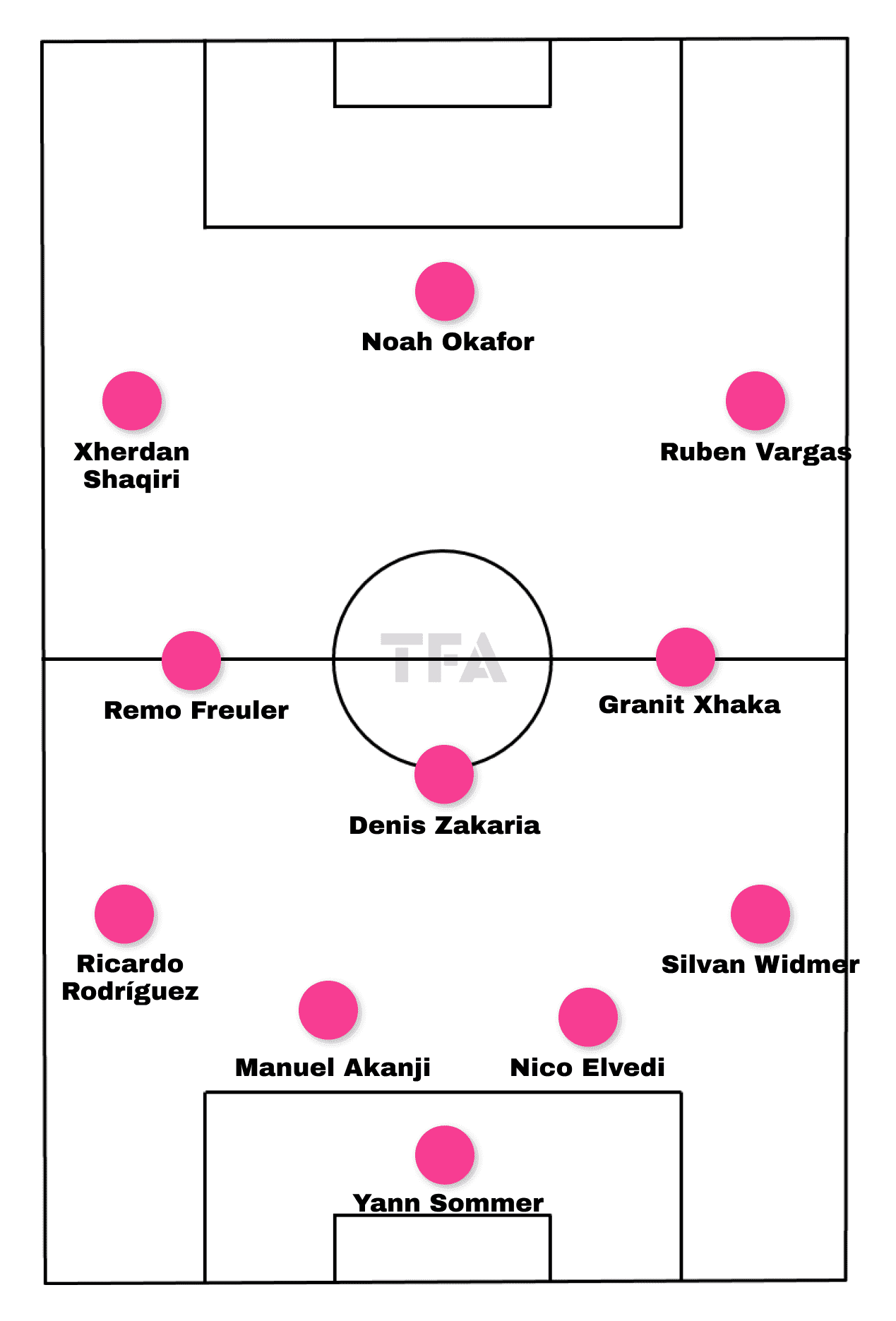
Switzerland tried out various formations during the last period, including the 3-4-2-1, 3-5-2, 3-4-3, 4-3-3, 4-1-4-1 and more.
Nevertheless, the one formation that seems to fit the players’ characteristics the most and allows the team to be as balanced as needed in both phases is the 4-3-3, though Murat Yakin might resort to other formations during the tournament depending on the opponents’ strengths and weaknesses such as the 3-5-2 or the 3-4-2-1, it is more expected that Switzerland will start the tournament with a back-four, three midfielders and three attacking players.
The goalkeeper role is certainly going to be reserved for Yann Sommer, who has been having an incredible time at Inter Milan lately and represents a model to follow for the emerging goalkeepers in Switzerland.
Lyon’s Yvon Mvogo and Young Boys’ David von Ballmoos will be the backup goalkeepers, who must be ready to be used at any time during the tournament, as surprises happen so often in this kind of competition.
In defence, Switzerland will most probably be relying on the services of Manchester City’s Manuel Akanji and Borussia Mönchengladbach’s Nico Elvedi as centre-backs as the two players have enough defensive chemistry between each other and can guarantee a compact defensive line with both the experienced Silvan Widmer and Torino’s (and former Milan‘s) Ricardo Rodriguez.
It is true that other options like Kevin Mbabu and Ulisses Garcia have the potential and the abilities needed to play as full-backs instead of Widmer and Rodriguez.
However, Yakin is expected to opt for experience on both flanks and make changes if things don’t go well for Widmer or Rodriguez.
At the same time, Cédric Zesiger and Fabian Schär will be the backup options for Akanji and Elvedi during the tournament.
With the injury of a quality midfielder like Djibril Sow, Switzerland would opt for a classic midfield composition made up of a defensive midfielder and two central midfielders instead of playing with two central midfielders and using Djibril Sow as an advanced playmaker.
Therefore, it is expected that Yakin will opt for Denis Zakaria as a defensive midfielder and Remo Freuler and Granit Xhaka as central midfielders.
In fact, this midfield can guarantee both defensive and attacking additions, as the three players are excellent enough to perform well and help in transitions, playmaking, and defensive duties.
Up front, Xherdan Shaqiri and Ruben Vargas will most probably be the starters for Switzerland on the wings, as both players can be dangerous enough and have chances to start.
Dan Ndoye and Renato Steffen can create a lot of problems for opponents when they get subbed in during the second halves.
Knowing that Breel-Donald Embolo is injured and will be absent during the Euros, Yakin will have to fully trust Noah Okafor and Cedric Itten for the striker role, with more chances for Okafor to be the starter.
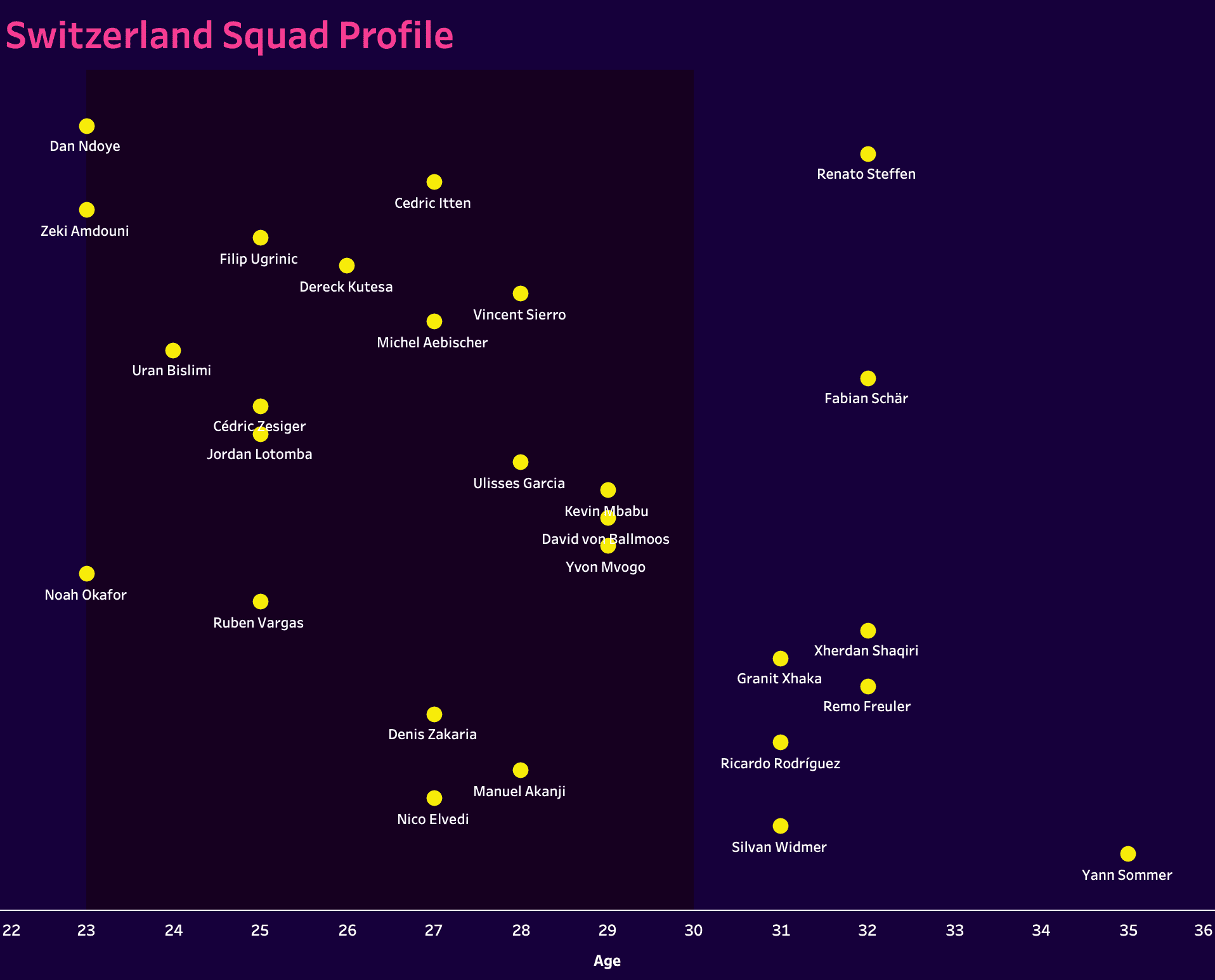
When considering this age graphic, we can notice that Switzerland do not really have many young players in their national team squad.
Okafor, Ndoye, and Zeki Amdouni are the youngest in the team, at 23 years old.
For the rest, most of Switzerland’s players are actually enjoying their peak years.
The remaining players are past their 30s, but not really by much, with the exception of Yann Sommer, who is 35.
The others are between 31 and 32 and are actually in good form and at an age that combines experience and fairly good physical condition.
This concerns Widmer, Freuler, Xhaka, Rodriguez, Shaqiri, and Schär.
Attacking Phase
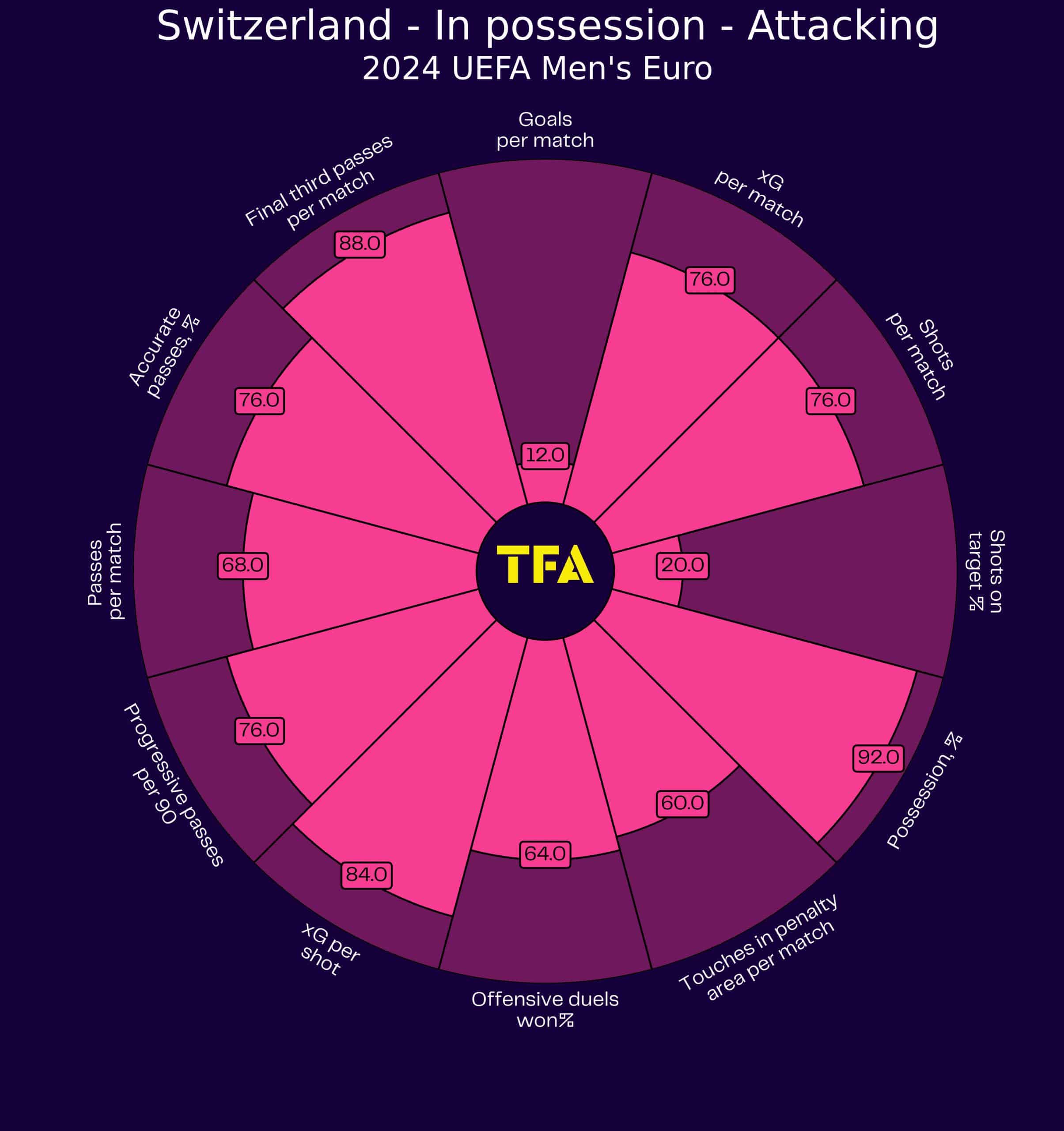
Generally speaking, Switzerland have been dangerous from an attacking perspective during the last few years.
They actually have some very powerful players in midfield and in attack that allow them to create problems for any defence.
At the same time, sometimes we feel that the team’s attacking performances fall below expectations, especially when they are the favourite to win.
When they are the underdogs, Switzerland usually succeed in creating surprises as they are powerful enough in transitions and counterattacks.
Although the statistics show that Switzerland are excellent in terms of possession rates, they often fail to convert this possession into goals, mainly because their shots-on-target averages are quite low compared to the number of shots per game.
In addition, this graphic highlights the passing accuracy average and the high number of final third passes per match, which confirms that the problem is mainly related to finishing and not to playmaking.
Therefore, Yakin must push his team to focus more on finishing in front of goal and on alternating attacking plans in order to score more per game and reach the target more times per match.
Otherwise, it will be complicated for Switzerland to create problems against Germany and to win against Scotland or Hungary.
Set-pieces can be a very useful tool for scoring goals for Switzerland in this tournament, mainly because the team has Shaqiri, who has proven that he is an excellent set-piece taker and has already scored a free-kick very recently against the Republic of Ireland.
We saw Switzerland succeeding many times in scoring goals from set-pieces, whether directly or indirectly, thanks to the great positioning and finishing of the players who wait inside the box.
In this regard, the advancing of Akanji or Elvedi at times makes the difference as these tall players’ existence inside the box can often make things complicated for the opponents like it did in the following example when Akanji was able to put the impact needed following Shaqiri’s cross.
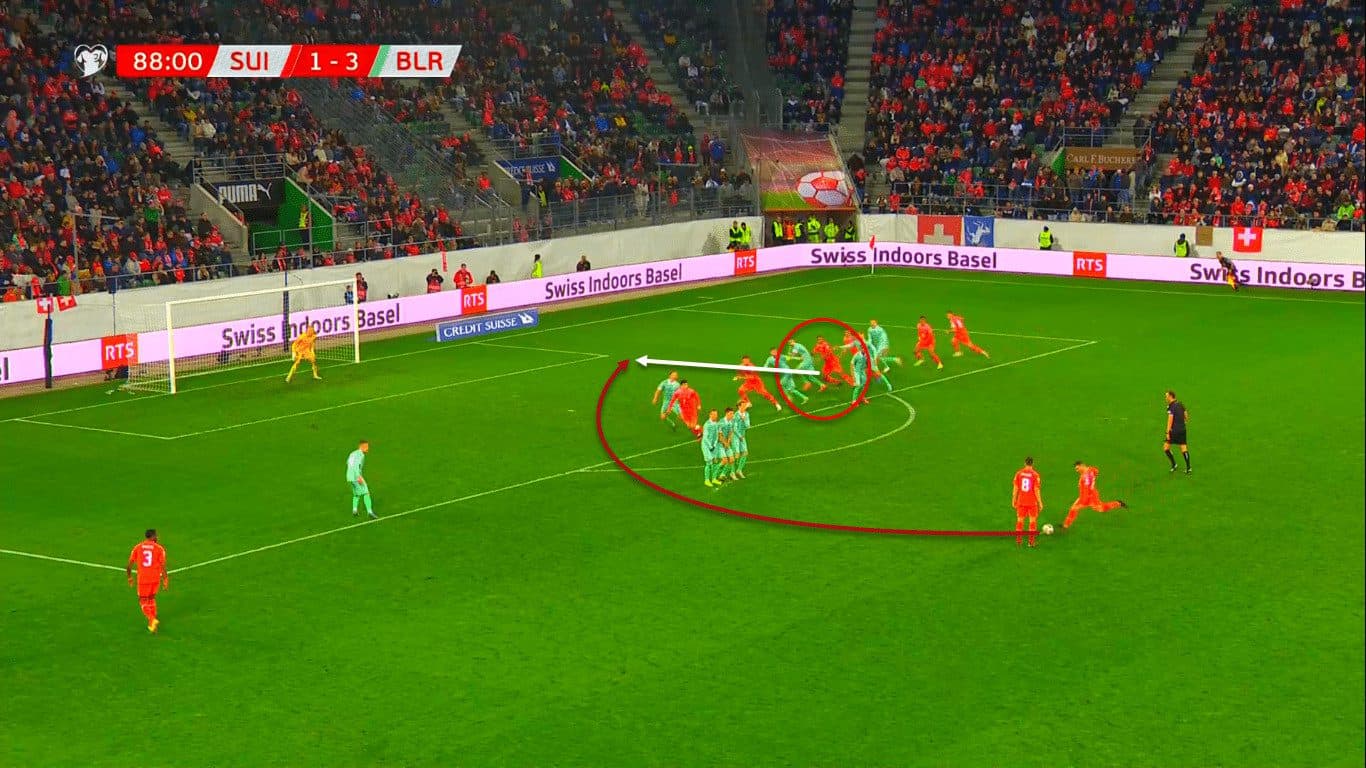
In addition, exploiting some of the players’ abilities in the air would prove fruitful, especially since someone like Vargas has been scoring a lot of headers lately for Switzerland.
This means that the Swiss can rely a lot more on crosses from the wings and on early crosses, especially when noticing Vargas, Okafor, Amdouni and especially Itten, who is the tallest among the team’s attacking players.
The following example highlights this ability of Vargas to free himself from marking and orientate the ball with his head to the direction he wants with ease, after receiving an accurate cross from Edimilson Fernandes.
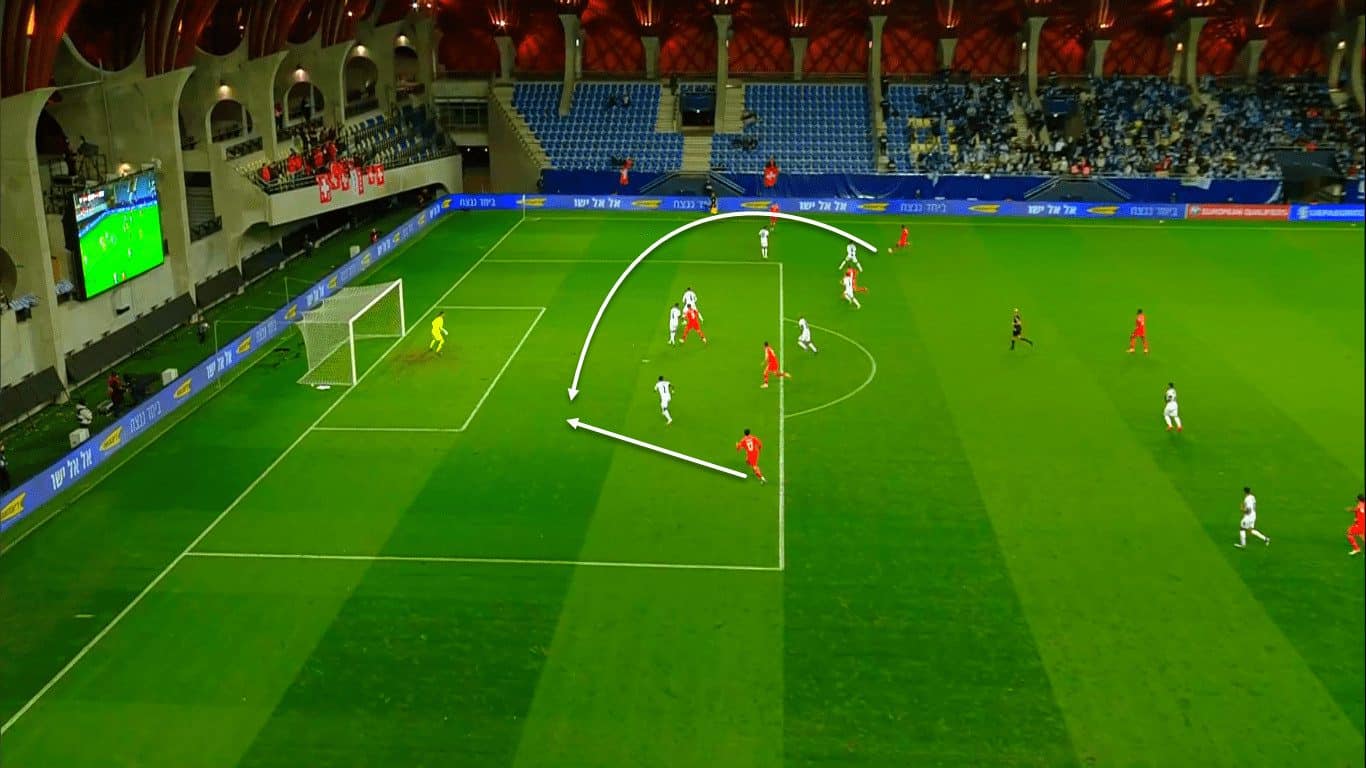
Since years ago, Switzerland have relied heavily on some of their players’ solo efforts — especially Shaqiri, who usually transforms when playing for the national team and becomes much more dangerous than usual.
The Chicago Fire player is still performing well and is capable of helping his national team with free kicks, curved shots from distance, key passes, dribbling, and more.
The following example of a recent goal he scored highlights the winger’s ability to confuse goalkeepers with his shots from distance, as he did here against Belarus.
That being said, consistency represents an issue for former Liverpool‘s Shaqiri at times, and Switzerland just can’t rely on a single player to score goals.
That’s why it is very important to work further on combinations between Shaqiri, Vargas, Okafor or Itten and concentrate a lot on off-the-ball movement to create space for each other inside the final third.
Otherwise, it will be difficult for Switzerland to disturb opponents like Germany while just relying on one player’s form up front.
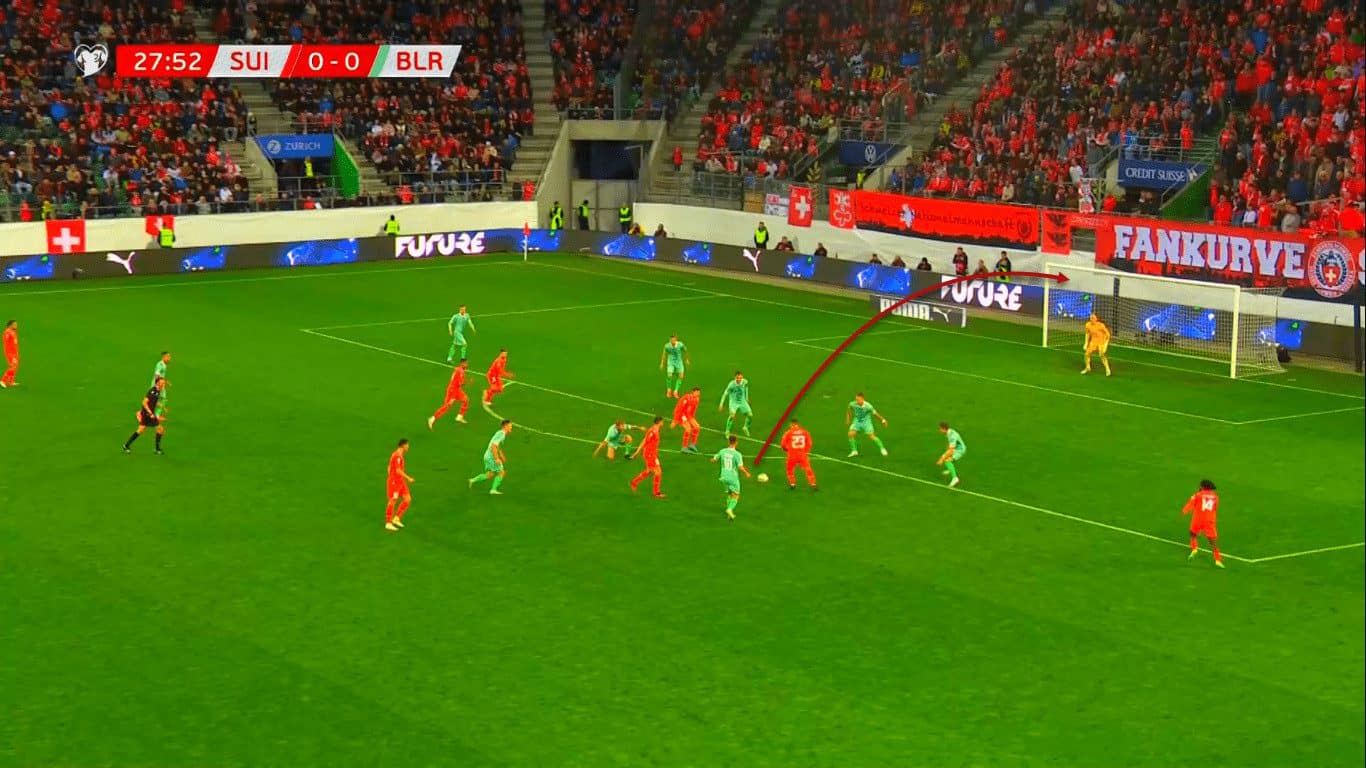
Okafor and Itten will need to be at their best during this tournament and aim to score goals to confirm that they deserve their spots in the absence of Embolo.
Their role will be crucial in Switzerland’s attacking phase as they will need to exploit half-chances and move intelligently to get away from marking while always providing passing options.
Defensive Phase
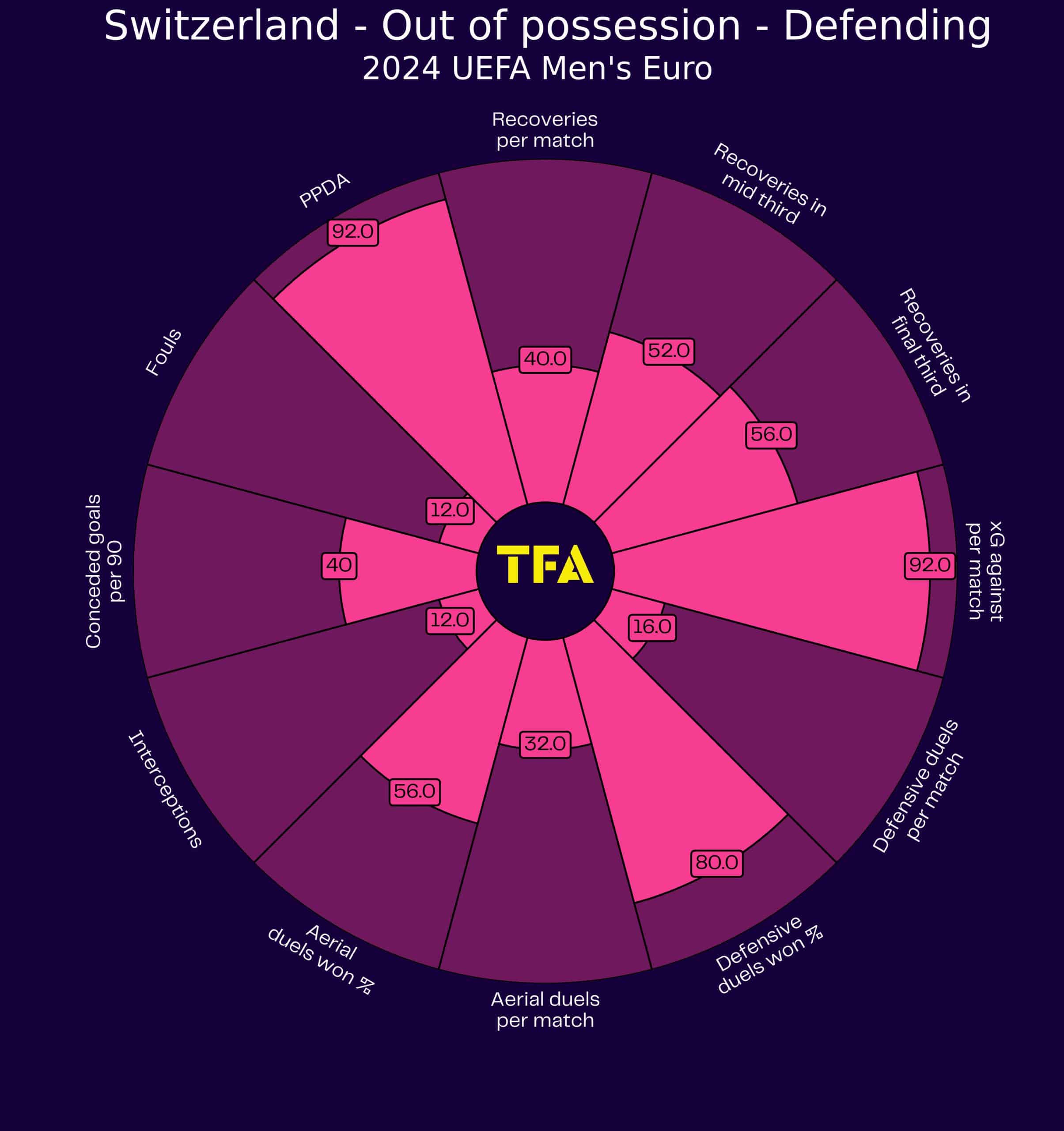
When it comes to their defensive phase, Switzerland has a solid backline combining experience and physical strength.
However, they still need to make some tactical adjustments to perform at their best.
The above graphic highlights their ability to win the majority of defensive duels per game.
However, they need to be a little bit more focused and aggressive regarding aerial duels, as they have some lower averages in that aspect.
At the same time, we notice that the team’s PPDA is high and that their xG against per game is very high, which is a bit worrying and tells us that Switzerland’s defence can be fragile at times.
Yakin relies on Akanji’s experience a lot, and with someone like Elvedi beside him, these two centre-backs must guarantee more solidity in their own penalty box.
Rodriguez and Widmer or Mbabu also have a very important role in covering the wings and marking key attacking players.
Therefore, they will need to keep their level of concentration high throughout the games, as their opponents’ wingers can create danger at any moment.
This also leads us to stress the importance of the midfielders in the defensive phase and how Zakaria, Xhaka and Freuler have to cover on the wings when needed and form a second line of defence when the opponents try to penetrate from the middle.
One thing Switzerland will have to avoid during the tournament is leaving wingers or strikers behind and failing to mark them properly, as some of the defenders did recently.
In this example of a conceded goal against Romania, Ulisses Garcia failed to mark his direct opponent properly.
He was standing in a way that prevented him from following the opponent since he was looking at the ball only and forgot to look at the player simultaneously.
These details might sound unimportant, but they are actually fundamental to avoiding conceding goals due to poor marking or individual mistakes that can’t be committed at the highest level.
Preventing such actions by training the team to mark tightly individually and as a unit during set-pieces and in open play can make the team much more solid defensively.
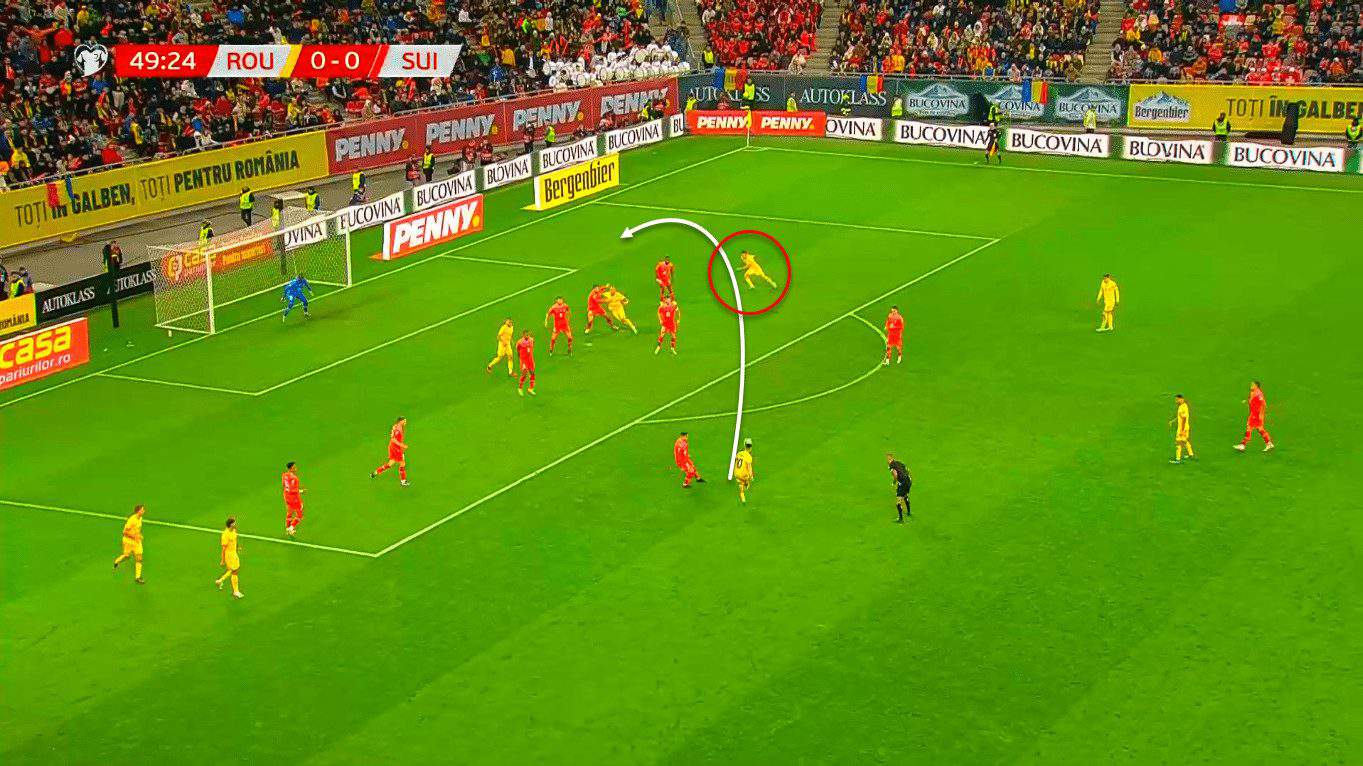
Moreover, marking strikers inside the box and paying a lot more attention to the opponent’s movement without the ball in that area needs to be improved; the training on this aspect definitely has to be intensified in order to not let opposing strikers move freely and receive passes while having enough time and space to turn and shoot on goal, especially when considering that the team will be facing some experienced and quick strikers during this tournament.
Avoiding similar cases like the one we see below is essential.
Switzerland allowed Kosovo’s striker Muhamet Hyseni to receive a pass freely and have the space and time to shoot without disturbance.
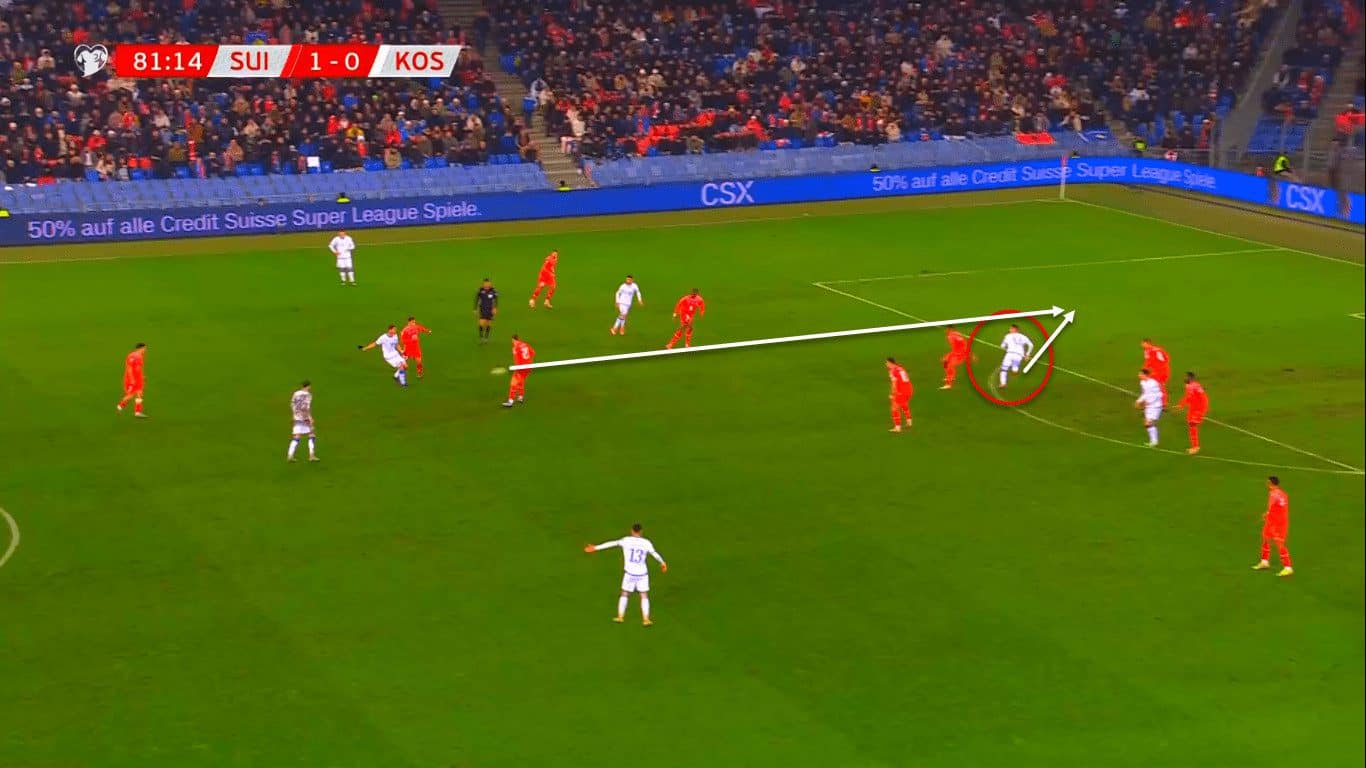
Transitions
For transitions, Switzerland usually rely on someone like Zakaria or Xhaka to start their attacking transitions either with quick passes to the wings or with runs in the middle before passing.
They tend to use the wings a lot during counterattacks while switching the play to the other wing at times, which makes their attacking transitions a bit slow at times and not as efficient as they need to be.
Making their attacking transitions quicker would certainly add an important attacking solution for the team as this will allow them to reach the goal easier and be more successful if they resort to playing with a low defensive block, defend and then reply using quick counterattacks, especially against tougher teams.
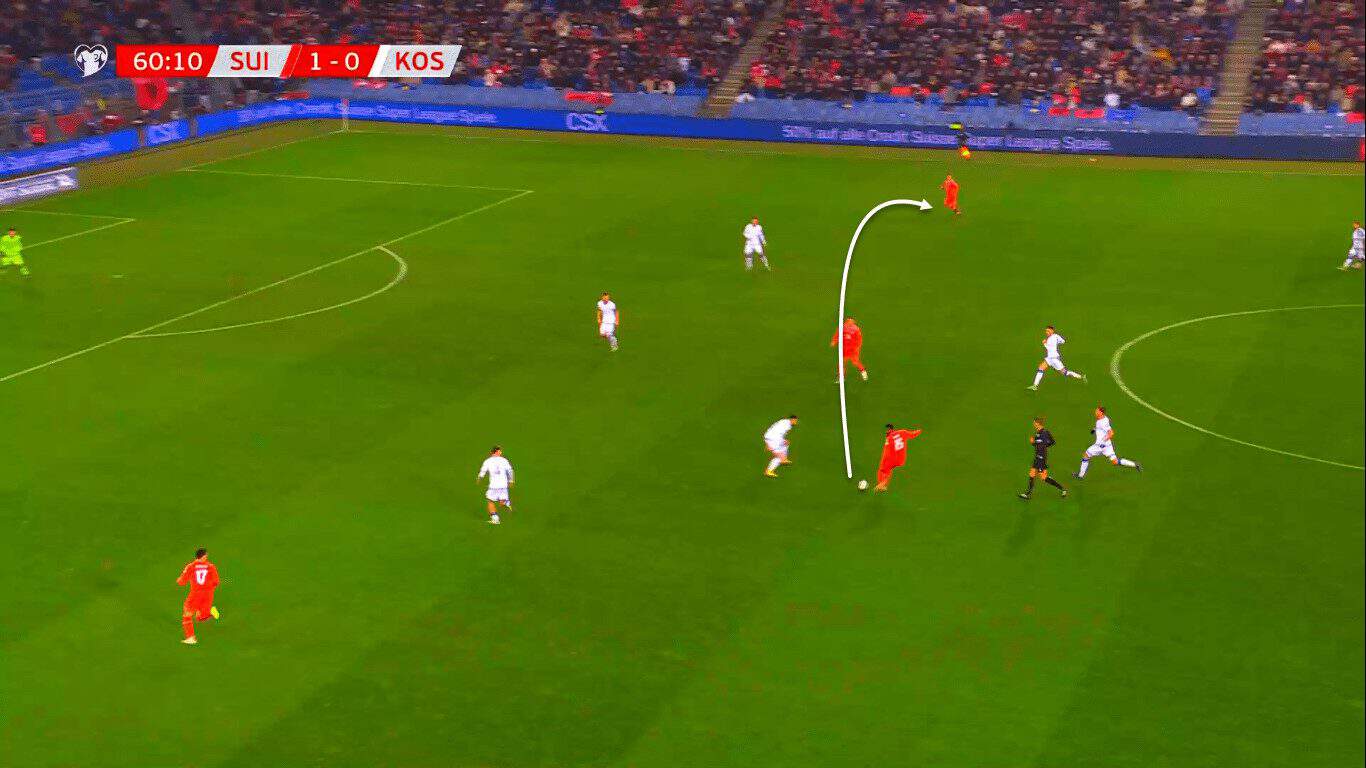
Regarding defensive transitions, it is important to note that two of the Swiss defenders are always instructed to remain in their positions when the opponent intercepts the ball and starts counterattacks.
At the same time, one or two players always retreat immediately after losing the ball to cover the flanks, as you can see in the following example.
This highlights the team’s discipline in such cases and shows that these defensive transitions are given the necessary importance.
The only aspect that can be improved in this regard is to push midfielders to retreat quicker and react with much more intelligence in order to alleviate the dangers of such counterattacks.

Forwards
In attack, Switzerland will suffer from the absence of someone like Embolo, who used to provide a lot of attacking depth, goalscoring skills, and physical disturbance to defences.
In his absence, Okafor, Itten, and Amdouni will have to prove that they can replace him, and the team shouldn’t feel his absence massively if the starting striker wants to win a long-term starting spot in Switzerland.
In order to achieve this, Okafor, Itten, and Amdouni will have to be clinical in front of goal, move a lot without the ball inside the box, and aim to create goalscoring opportunities for themselves rather than relying only on passes from teammates.
At the same time, players like Shaqiri, Vargas, Ndoye, and Renato Steffen are expected to make a difference in terms of playmaking and goalscoring.
These three players have all the abilities needed to shine, thanks to their dribbling, passing, and shooting skills.
Midfielders
The midfielders’ roles are no less important than that of the strikers — and they can be considered even more important because they include two parts in major ways: a defensive and an attacking one.
Therefore, Zakaria, Freuler, and Xhaka will have to be attentive enough in terms of coverage, interceptions, and closing of passing lanes.
At the same time, they need to be creative enough when in possession, play under high pressing, and keep their passing accuracy high even when being disturbed to create as many attacking opportunities as needed.
Defenders
Regarding defenders, the team’s hopes are very much related to Akanji and Elvedi’s ability to stop dangerous opponents and resist tough attacking systems, especially those of Germany and Scotland in the first phase.
Full-backs will also need to be at their best against the wingers that they will encounter, and that’s why reactive substitutions from Yakin will probably be necessary on certain occasions.
For instance, it will be much more useful to opt for Ulisses Garcia instead of Rodriguez when noticing that the winger who plays on his side is looking faster than him or is expected to win in most duels against Rodriguez.
Zesiger and Schär are also expected to participate, and they have to be concentrated enough not to cause problems for their team’s defence if they replace one of Elvedi or Akanji.
Although both Zesiger and Schär do not have the abilities of Elvedi or Akanji, they can compensate for that with their excellent physical abilities and aggressivity in duels while avoiding wrong clearances or passes.
Key Player
Shaqiri has been the team’s star for so long and has helped them win while being the underdogs many times.
Although he is 32 now and is playing in the MLS, he is still capable of bringing a lot of quality to this Swiss team and has the character needed to lead the team attacking-wise.
His set-piece-taking abilities, in addition to the curved shots that he masters from distance and complicated angles, make him a valuable goalscorer for the team and a player who can’t be replaced at the moment since no one in this Switzerland team is capable of interpreting his roles with the same quality.
Apart from goalscoring, Shaqiri has consistently proven his playmaking intelligence and his ability to provide key passes or crosses in a constant fashion and in a way that can prove fatal for defenders.
That’s why his existence in the final third always frustrates opponents and makes things a bit easier for his attacking teammates.
Although this graphic shows that Shaqiri is not really good either in defensive or aerial duels, it clearly highlights the Chicago Fire winger’s passing abilities as he still has a very high dangerous passing average per game.
That being said, trying to opt for shooting in a more regular way during this tournament would be beneficial for Switzerland since Shaqiri’s shooting abilities have always been excellent and can help the team a lot in complicated moments.
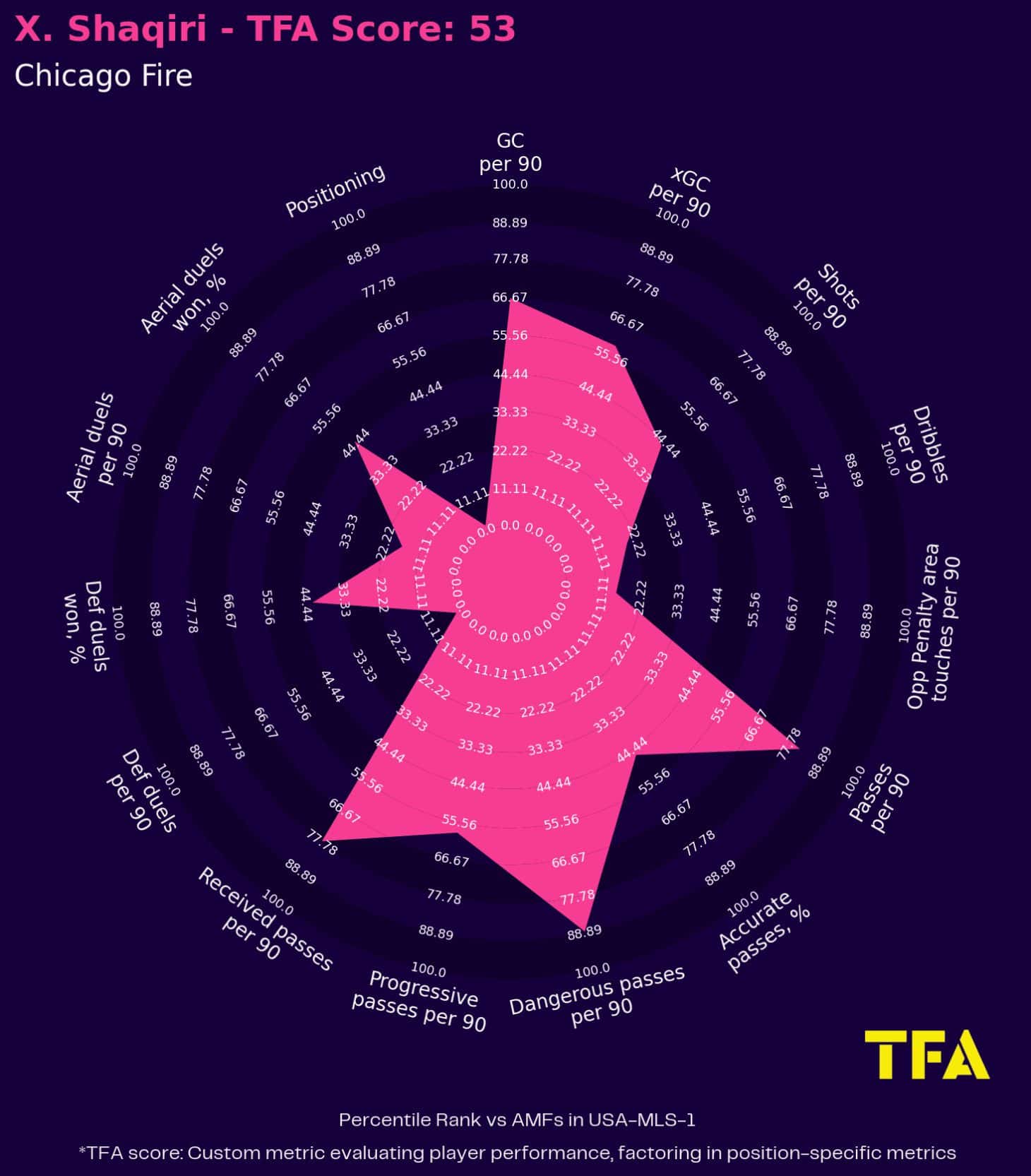
Tournament Prediction
Switzerland are considered the favourites to join Germany in progressing from Group A.
However, they will have to work hard and avoid underestimating their opponents to achieve this spot.
Facing Hungary and Scotland will surely be tricky as these two teams have the potential of beating or drawing against Switzerland — there isn’t a lot between them.
At the same time, not fearing Germany and playing against them with the confidence they showed with their upsets in recent tournaments will be vital to achieving a positive result against one of the toughest European teams historically and at the moment.

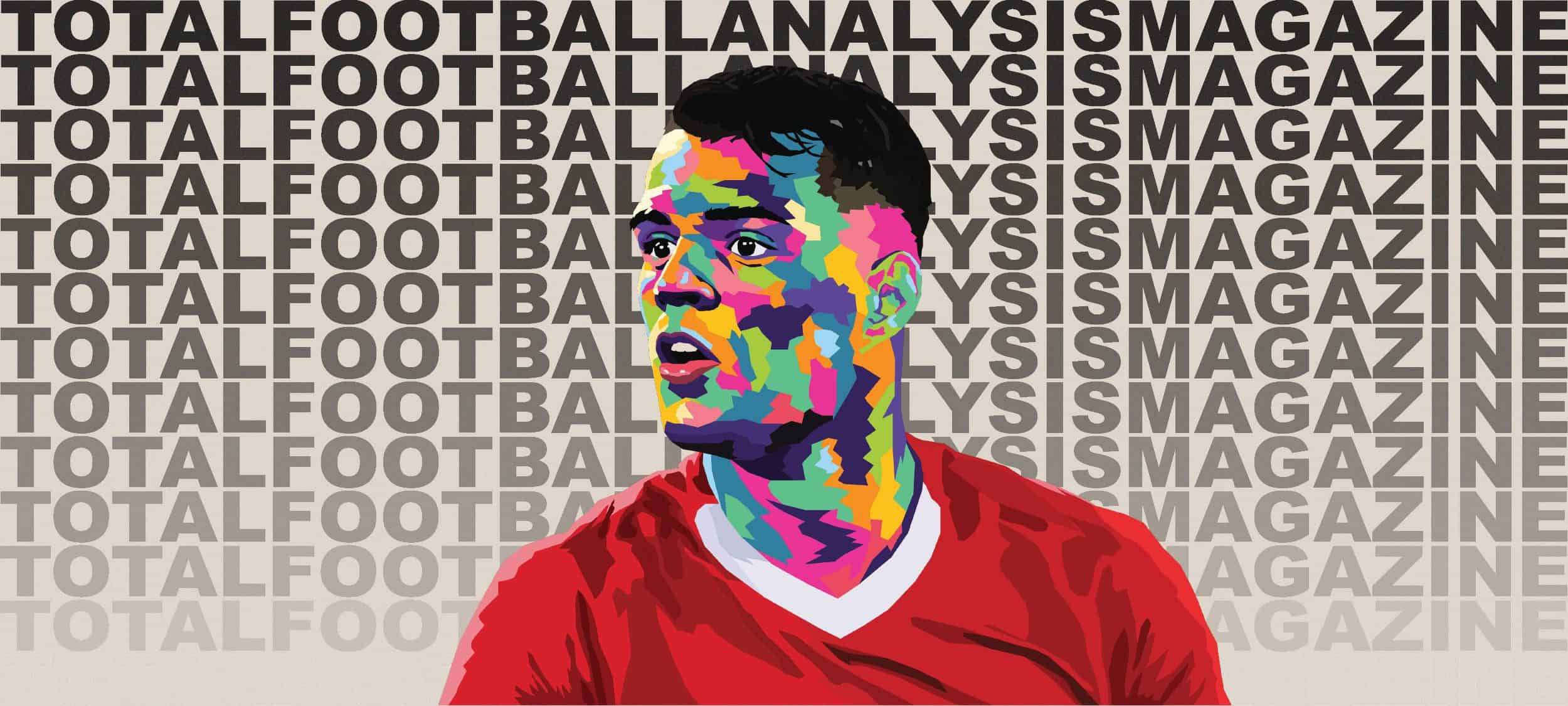

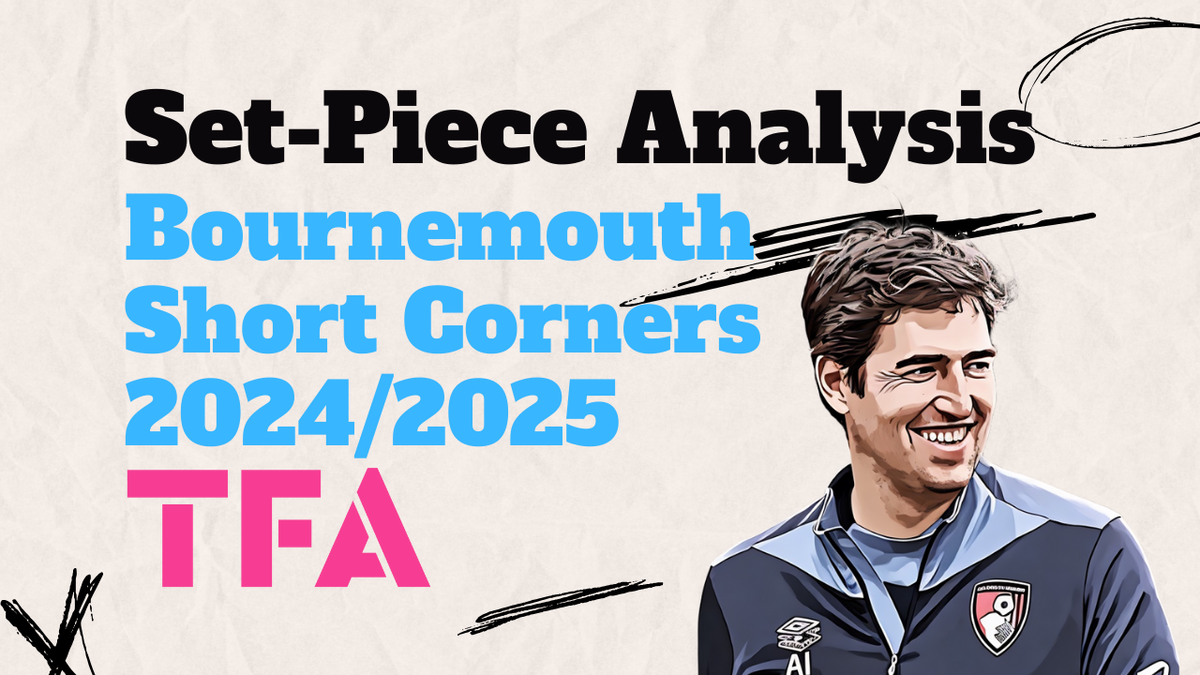
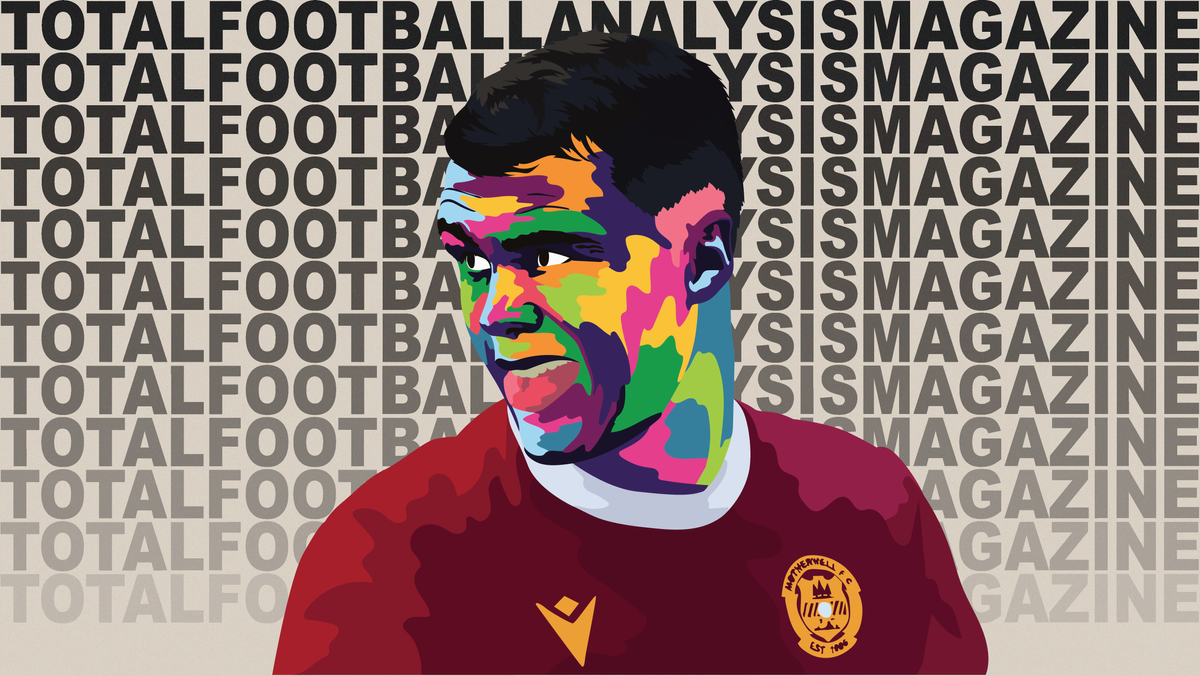
Comments